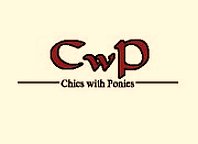|
<<
>>
YOUR HORSE BUSINESS REQUIRES EQUINE BIO-SECURITY(Note: As stated elsewhere in this website, this site does NOT offer advice on training and riding horses or horse care. More specifically, with regard to this section on Equine Bio-Security, your Veterinarian and other resource materials specializing in this subject can provide expert advice.) Following bio-security procedures are the joint responsibility of every horse person, whether you are the owner of a horse, in the horse business, or even visiting your friend’s horse. There are simply too many was to cross-contaminate and carry diseases from horse-to-horse or barn-to-barn to ignore following good bio-security procedures. This is true for the health of the horse without regard to the impact upon a business (which is obvious). Far too many people associate bio-security with something that happens after a horse is affected with a virus or condition. However, bio-security begins with efforts to MINIMIZE the opportunities for a breach of good health. These opportunities may come from inter-barn visits, be transported by visitors or guests to barns, may come from neighboring properties, and from horse to horse contact facilitated by humans. While there are no foolproof procedures to prevent the spread of disease in horses, your goal is to MINIMIZE opportunities for the spread of disease, MONITOR the health condition of your horse or horses, and to REACT quickly and appropriately. To do this, your horse business requires a good bio-security plan. Your first step is make yourself aware of your current situation and bio-security events that are ongoing in your area including local, state, and national outbreaks and concerns.
ASSESS YOUR BIO-SECURITY RISKASSESS YOUR BIO-SECURITY RISK: the University of Guelph(pronounced Gwelf) is a major Canadian University located in Ontario, Canada. The University has a strong agricultural and veterinary collegiate standing and operates a premier equine program.
Equine Guelph The University of Guelph has also designed a Bio-Security Risk calculator to help assess your current situation and see where improvements may be needed.
GET CURRENT BIO-SECURITY EVENT INFORMATIONMonitor and stay current on bio-security events and issues in the United States through the United States Department of Agriculture. For example, the USDA provides information and updates on Current Outbreaks like the EHV-I 2011 Outbreak and the West Nile Virus.
The USDA also provides background Fact Sheets and Brochures on several Equine Health Issues on an ongoing basis. USDA EHV-1 Brochure. Information on other Equine Health Conditions and Viruses can be found at the USDA Website. In addition to the USDA, you should also follow information provided by your State Veterinarian to receive more local updates on Equine Health issues. Subscribe to available newsletters and press releases and visit websites for current information. State Veterinarian Websites
and State Veterinarian Contact Information (January, 2010). PREPARE YOUR BIO-SECURITY PLANThere are several sources of information found on the Internet and in other resources that discuss how to create a bio-security plan. Consult several and keep in mind your local conditions and situations as you prepare your plan. One of the better bio-security planning tools is presented by the Alberta Veterinary Medical Association and Alberta Equestrian Federation. Their plan is presented in a thorough and logical format including Bio-Security Principles, Best Practices, a Workbook, and space for notes. See their Bio-Security Plan: Alberta VMA and Alberta Equestrian Federeration Bio-Security Plan Equine Bio-Security is critically important and you must take the time to stay abreast of current programs and conditions. Create and follow your own plan, encourage others to do the same, and keep your horse healthy.
|
NOW FIND US ON FACEBOOK!
We want to improve this website and offer the information that you need. This is an ongoing work in progress, but let us know your thoughts and post in General Comments under the Discussion Tab.
Follow Us On Our Blog
While we encourage everyone to work and join their favorite equine interest groups, you should belong to one group that crosses all disciplines.
CwP supports lovers of horses and Susan B. Komen for the Cure, the Equine Protection Program of the National Humane Society, and The Justin Cowboy Crisis Fund.
You can also follow Chics with Ponies on Facebook !!
Take Advantage of Specials from Back in the Saddle!!

